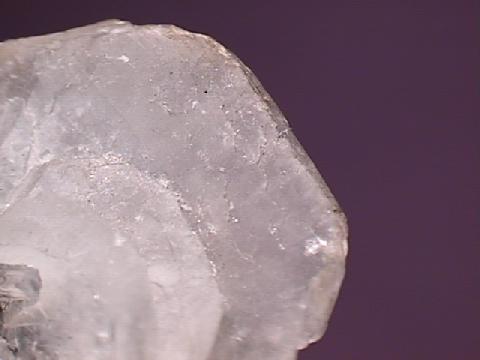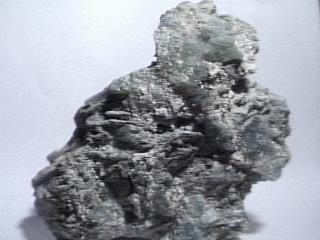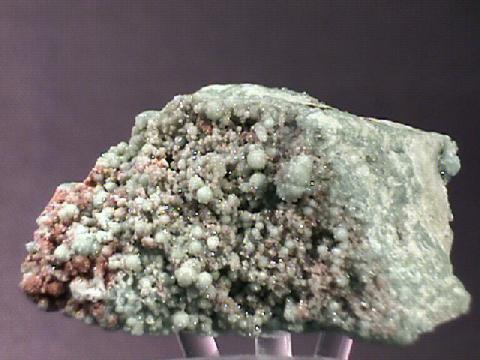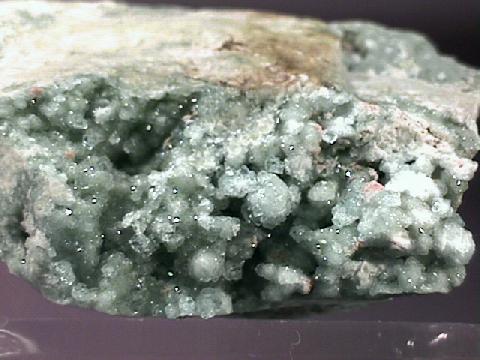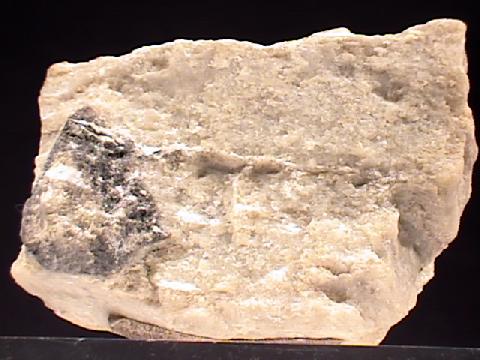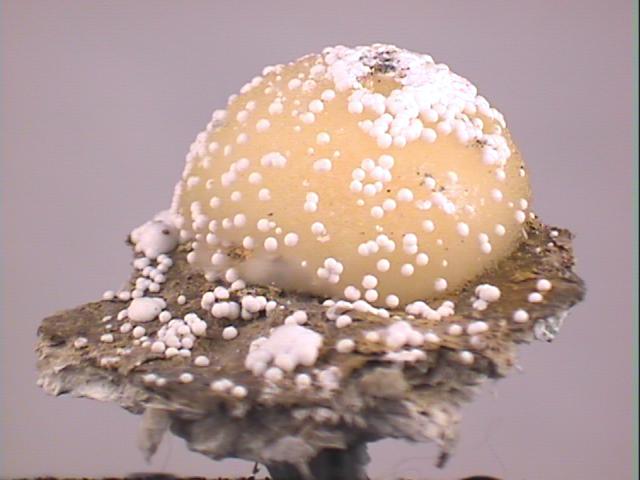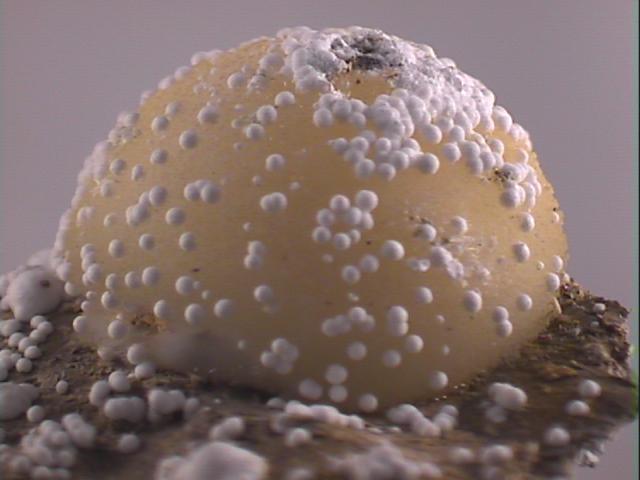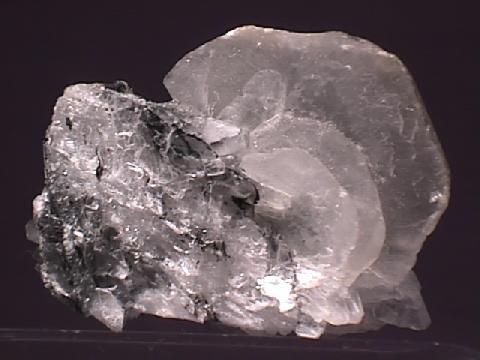
BRUCITE
Specimen bru-2
$ 50.00
Dims: 1.3" x 1.0" x 0.5" (3.3 x 2.5 x 1.3 cm)
Wt: 8.8 g
Cedar Hill Quarry, Lancaster County, Pennsylvania, U.S.A.
This small thumbnail specimen consists of 3 intergrown and incomplete Brucite crystals. The largest of them has a diameter of 1" (2.5 cm) and a thickness of 0.2" (5 mm), and the other two are about half that diameter. All occur in a flattened trigonal tabular form that has a rounded but definable hexagonal outline. Damage to each is considerable, but does not directly affect their edges. All have a pearly-white color and a dull, silky luster on their intact surfaces; the surfaces that have undergone cleavage show a brighter, pearly luster that makes me think of mica. Though they are rather milky in appearance, they still show a dim translucence. The base on which these crystals rest appears to be made up almost entirely of bits of other broken Brucite crystals.
